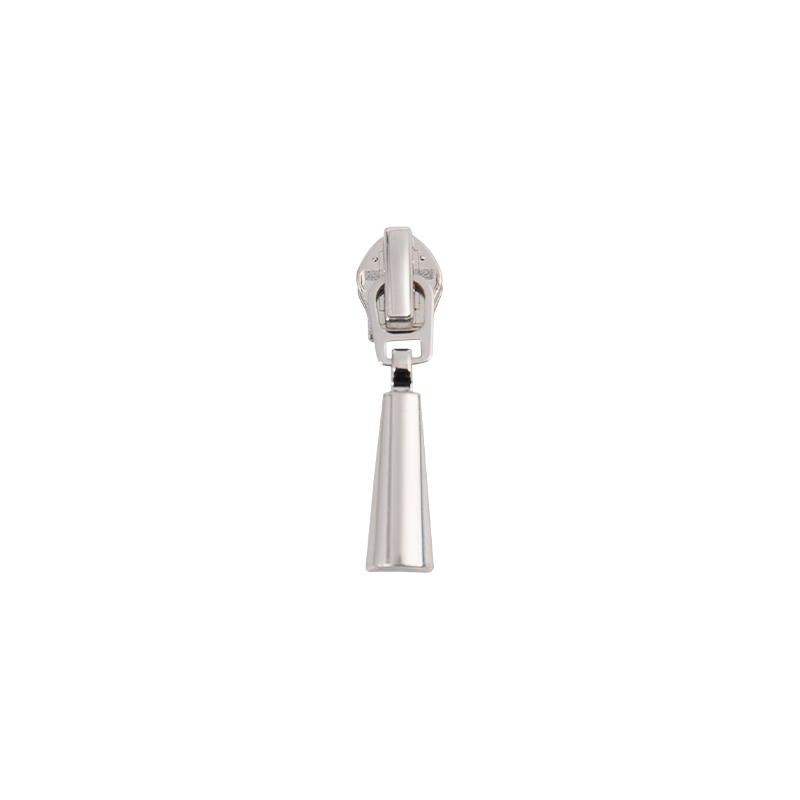Zippers are essential fastening devices widely used in clothing, bags, footwear, and various other textile and non-textile products. A zipper consists of several parts, including the teeth, tape, pull tab, and slider. The slider is the mechanism that moves up and down the zipper teeth to open or close the zipper. Among the types of zipper sliders, nylon and metal sliders are two common categories, each with distinct characteristics that affect performance, aesthetics, cost, and application suitability.
This article explores the key differences between nylon zipper sliders and metal zipper sliders to help you understand their properties and make informed choices depending on your needs.
1. Material Composition
Nylon Zipper Slider: As the name suggests, nylon zipper sliders are made primarily from nylon, a synthetic polymer known for its lightweight, flexibility, and durability. The body of the slider is often made from molded nylon resin, which is sometimes reinforced with additives to improve strength and wear resistance.
Metal Zipper Slider: Metal sliders are manufactured using various metals such as brass, aluminum, zinc alloy, or steel. These sliders are typically die-cast or stamped and then polished, plated, or coated to enhance corrosion resistance and aesthetic appeal.
2. Weight and Flexibility
Nylon Slider: Nylon sliders are much lighter than metal sliders, which makes them ideal for applications where weight reduction is important, such as sportswear, outdoor gear, or lightweight bags. Nylon also offers greater flexibility and slight elasticity, which helps the slider absorb shocks and impacts better.
Metal Slider: Metal sliders are heavier and more rigid. While this rigidity can provide a sturdy and solid feel, it may add weight to the finished product. The inflexibility of metal sliders means they can be more prone to denting or bending under extreme force.
3. Durability and Strength
Nylon Slider: Nylon sliders provide good durability under regular use but are generally less robust compared to metal sliders. They can wear out faster if subjected to heavy-duty or abrasive conditions. However, nylon’s resistance to corrosion and rusting is superior to metal, especially in humid or wet environments.
Metal Slider: Metal sliders are generally stronger and more durable under mechanical stress. They can handle higher loads and resist deformation better than nylon sliders. However, metal is susceptible to rust and corrosion if not properly treated, especially in outdoor or marine environments.
4. Appearance and Aesthetic
Nylon Slider: Nylon sliders can be produced in a wide variety of colors through pigmentation during manufacturing, offering great flexibility in matching the zipper slider to fabric or product designs. Their smooth and matte finish suits casual and sporty aesthetics.
Metal Slider: Metal sliders provide a classic, polished, and often premium look. They can be plated in various finishes such as gold, silver, antique brass, or gunmetal, making them popular for fashion apparel, leather goods, and luxury items. The metallic sheen and tactile feel add perceived value to products.
5. Cost
Nylon Slider: Nylon sliders are usually less expensive to produce than metal sliders. The injection molding process for nylon components is highly efficient and scalable, reducing unit costs. This makes nylon sliders a cost-effective choice for mass-produced items.
Metal Slider: Metal sliders tend to be more costly due to raw material prices, manufacturing complexity, and finishing processes such as plating or polishing. Their higher price often corresponds to a more premium positioning in the market.
6. Environmental Resistance
Nylon Slider: Nylon is inherently resistant to moisture, chemicals, and UV degradation to a reasonable extent, making nylon sliders suitable for outdoor gear and products exposed to the elements. They do not rust and maintain functionality in wet conditions.
Metal Slider: Metal sliders can corrode or oxidize without protective coatings, which limits their use in moist or corrosive environments unless specifically treated. However, high-quality plating or anodizing can greatly enhance their resistance.
7. Applications
Nylon Slider Applications: Nylon sliders are commonly used in apparel such as jackets, raincoats, sportswear, and children’s clothing. They are favored in backpacks, tents, sleeping bags, and other outdoor equipment where lightweight and corrosion resistance are critical. Nylon sliders are also used in luggage and casual bags.
Metal Slider Applications: Metal sliders are typical in denim jeans, leather jackets, boots, handbags, and heavy-duty workwear. Their robust build and stylish appearance suit high-end fashion, leather goods, and accessories where durability and look matter. Metal sliders are also used in industrial applications requiring high strength.
8. Noise and Operation Feel
Nylon Slider: Nylon sliders tend to operate quietly and smoothly because the material reduces friction noise when moving along nylon or polyester zipper teeth. This quality is appreciated in sportswear and outdoor gear where silent operation is preferred.
Metal Slider: Metal sliders often produce a louder clicking or clanking sound during movement, which can be desirable for some fashion styles that highlight mechanical detail. However, metal sliders might feel heavier or stiffer during operation compared to nylon.
9. Maintenance and Repair
Nylon Slider: Nylon sliders require minimal maintenance and are generally easier to replace due to their lightweight nature. However, they can be prone to cracking or breaking under excessive stress.
Metal Slider: Metal sliders, while more durable, may require occasional cleaning to prevent tarnishing. Repairing metal sliders can be more challenging, and replacement might be necessary if deformation occurs.
Choosing between a nylon zipper slider and a metal zipper slider largely depends on the intended application, aesthetic preferences, environmental conditions, and budget constraints.
If lightweight, corrosion resistance, color flexibility, and cost-effectiveness are priorities, nylon sliders are an excellent choice, especially for sportswear, outdoor gear, and casual clothing.
If durability, strength, premium appearance, and a classic metallic feel are more important, especially for heavy-duty garments or luxury items, metal sliders are preferable.


 en
en  русский
русский 한국어
한국어 get a free quote
get a free quote
















